Inclusion & Gender
Advancing gender and inclusion is fundamental to MCC’s mission to reduce poverty through economic growth. Structural exclusion of disadvantaged groups is a problem in all countries. MCC recognizes that growth alone will not meet its poverty reduction mandate if its programs are not inclusive and sustainable. MCC and it partner countries are committed to routinely and systematically expanding opportunities for women, people living in poverty, and other structurally disadvantaged groups to access, participate in, and benefit from MCC programs.
Our Commitment to Gender and Inclusion
MCC’s commitment to gender-equitable and inclusive growth is grounded in its mission to reduce poverty through economic growth. MCC recognizes that growth alone may not be sufficient to reduce poverty; poverty reduction requires investments to be carefully designed to reach the intended populations because gender inequality can be a significant impediment to economic growth and poverty reduction.
Reaffirming the Commitment through Policy and Strategy
- MCC's Inclusion and Gender Strategy (launched in 2022) outlineses MCC’s key priorities and commitment to systematically integrate inclusion and gender in its programs.
- MCC’s Gender and Inclusion Policy (updated in 2024) codifies MCC’s approach to integration of inclusion and gender, setting out requirements for MCC and partner country governments to advance gender-equitable and inclusive processes and outcomes through all phases of program development and implementation.
Objectives of the Inclusion and Gender Strategy
- Strengthen integration of inclusion and gender considerations in MCC’s analytical tools.
- Include gender and inclusion considerations into all stages of program development and implementation.
- Support policy and institutional reforms to enhance the inclusion and gender impacts of MCC investments.
- Catalyze private capital for investments that promote inclusion and gender to help achieve MCC project objectives.
- Leverage partnerships to support MCC’s inclusion and gender objectives.
Key Features of the Gender and Inclusion Policy
- Gender and social analysis throughout the analysis of constraints to economic growth, program development, and program implementation.
- Inclusive stakeholder engagement to build a foundation of inclusive data and evidence and to solicit input from diverse voices.
- Advancement of economic security and empowerment, supporting projects that promote increased economic security and empowerment for women and other structurally disadvantaged groups.
- Gender and social risk mitigation to prevent investments from causing unintentional harm.
- Evaluation and learning to include indicators for monitoring gender and inclusion-intended outcomes evident in the project logic.
- Ensuring adequate resources including in staffing, and budgets for due diligence, design, and implementation.
Investments in Inclusion and Gender
Gender Equity through Institutional Reform in Lesotho
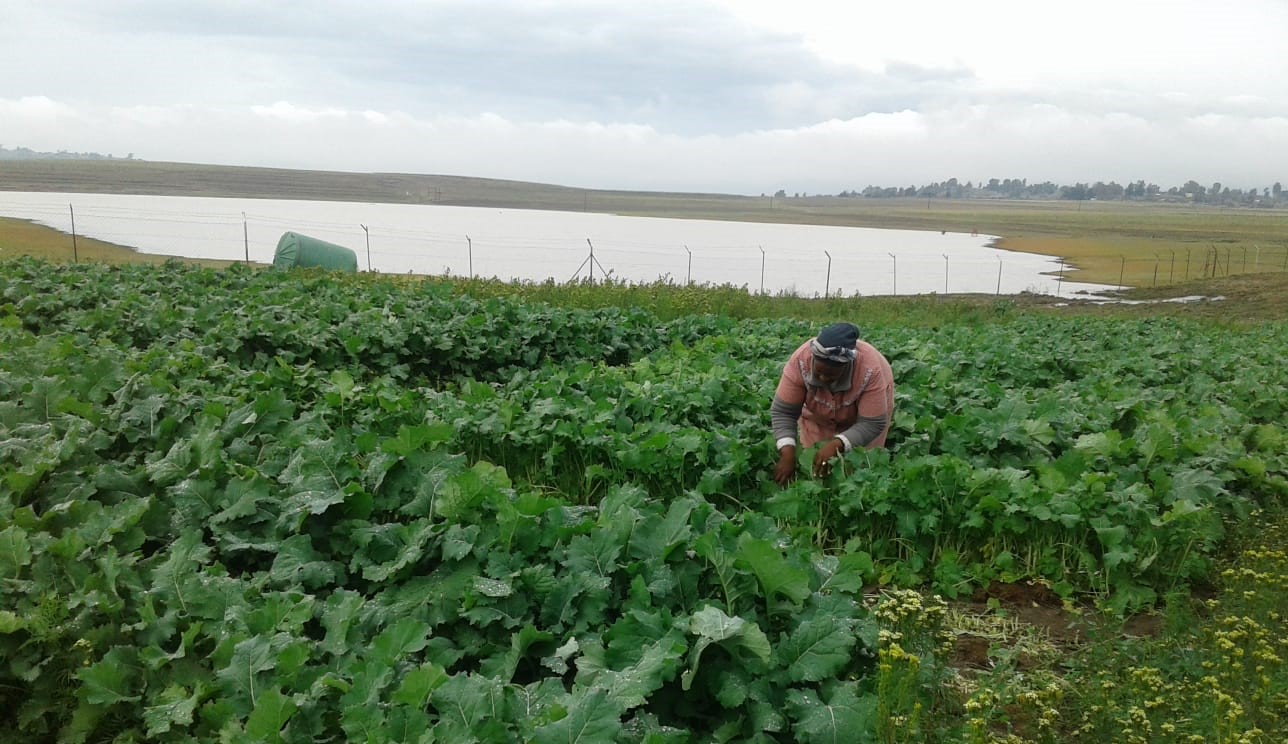
MCC
A woman-owned smallholder horticulture farm in the Mafeteng district of Lesotho.
The Lesotho Health and Horticulture Compact has advanced legal reforms that will secure land rights for rural women, ensure inheritance rights for daughters, strengthen labor rights for agricultural workers—where women are especially vulnerable to abuse—and strengthen protections against domestic violence.
These rights set the stage for women to access, participate in, and benefit from the compact investments in commercial horticulture. The compact will provide women and men with land titles, capacity building, and irrigation designed for their social and economic conditions. Use of the Gender Action Learning System—a methodology aimed at transformative norm change, will further support women’s ability to thrive in the new commercial horticulture opportunities. The compact will also target women- and youth-owned small and medium enterprises across several sectors for bespoke training and access to finance.
Inclusive Growth through Productive Use of Electricity in Senegal
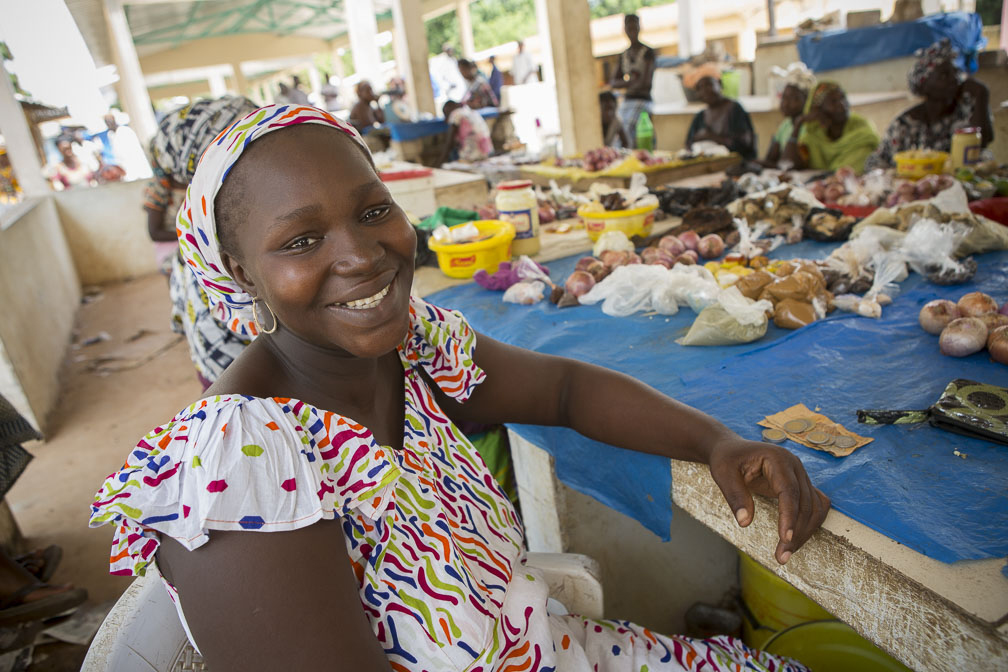
Jake Lyell for MCC
The Senegal Power Compact will expand access to electricity to 350 villages in the southern and central regions of Senegal which are home to high poverty and unemployment rates. The compact will enable approximately180,000 people in 12,700 households to connect to the national electricity grid. Of those, MCC’s investments will provide interior wiring directly to 6,000 vulnerable households that would otherwise not be able afford an electrical grid connection.
To ensure that electricity will unlock new economic opportunities for these communities, the project will offer business development training and electrical equipment to men, women and youth to increase production and support new types of economic activity. Women are specifically targeted for training and equipment, to ensure they can benefit from electricity and to reduce their household work burdens.
Supporting Women’s Land Rights and Employability in Morocco
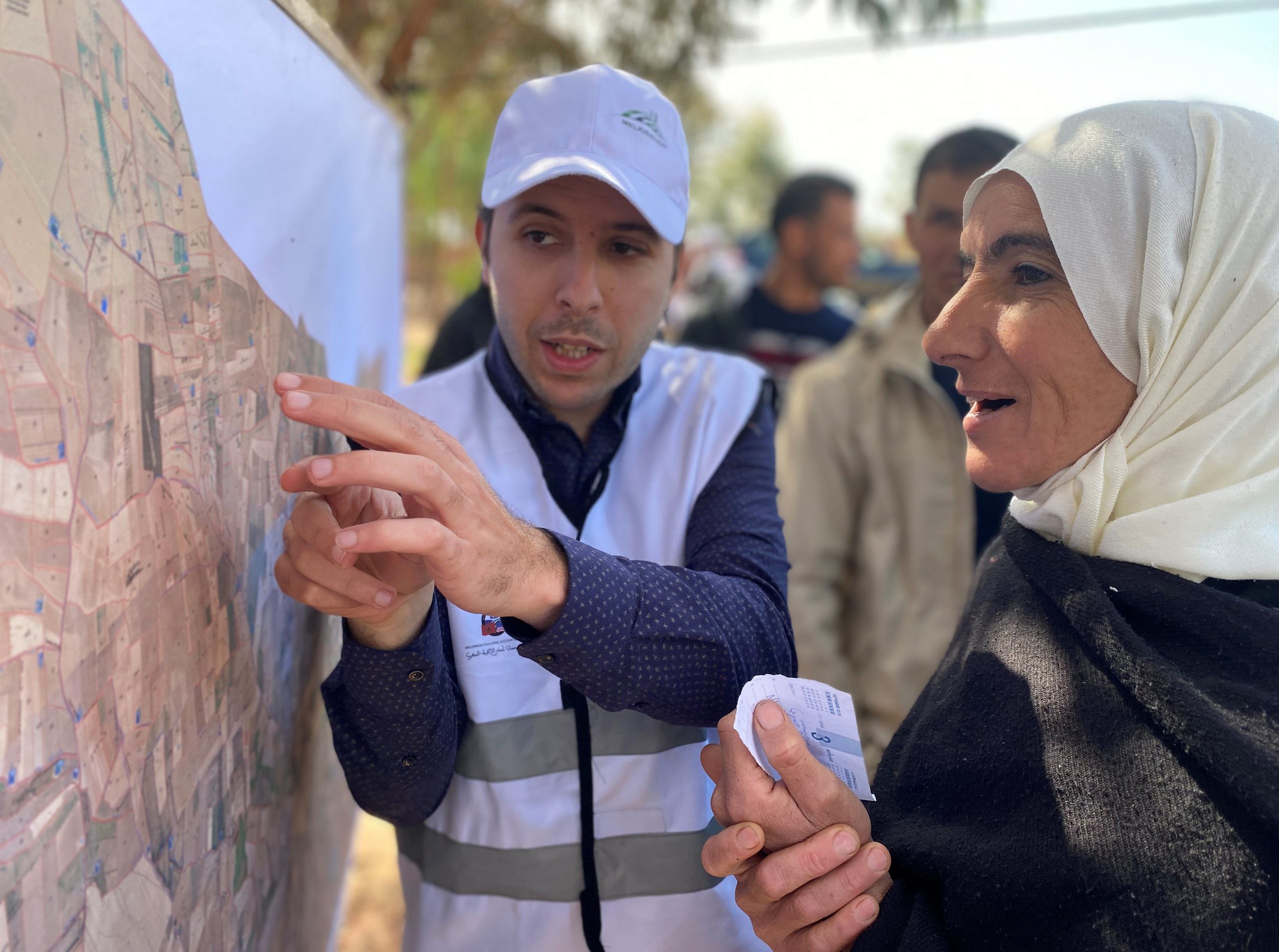
MCA-Morocco
A future land title holder confirms the location and boundaries of her plot on a draft parcel map for the collective of Ouled Sbih (Haouz region) in 2020.
The Morocco Land and Employability Compact prioritized inclusion and gender objectives, including advancing women’s land rights, participation in land governance, and female and youth employability and economic empowerment. The compact created a political space for dialogue that in 2019, resulted in the Government of Morocco passing legislation to eliminate the single-heir provision, providing legal protection for women to inherit land, rather than leaving inheritance procedures open to customary practices that can be more discriminatory. In 2022, the Millenium Challenge Account Morocco launched the Centre d’Inclusion des Femmes au Foncier (CIFF), also referred to as the Center for Women’s Inclusion in Land Rights to carry out further important work on women’s land rights.
In the vocational sector, the 15 technical and vocational education institutions supported by the compact’s consortium of public and private partners, known as the Charaka grant fund, adopted operational plans for gender and social inclusion that detail the promotion of gender equity in the governance and management of their centers and outreach to women.
Increasing Women’s Employment and Entrepreneurship in Kosovo’s Energy Sector
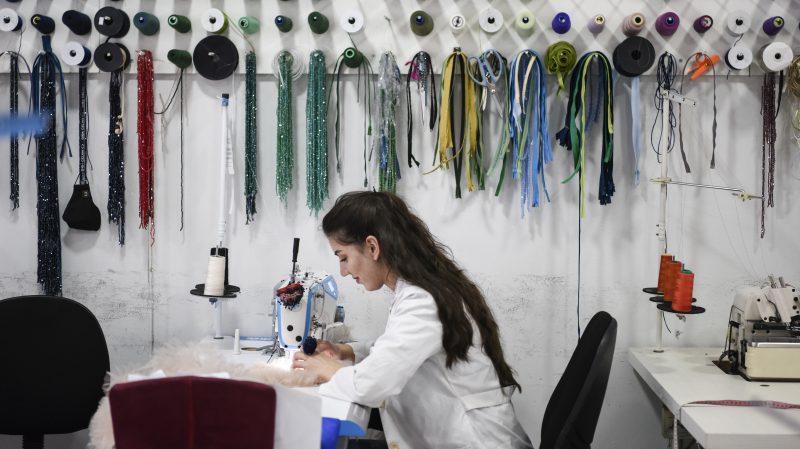
Millennium Foundation Kosovo
The Women in Energy program supported women entrepreneurs like Diba Celina, a fashion designer who received embroidery machines and a recycling machine.
The Kosovo Threshold Program focused on strengthening women’s employment and entrepreneurship in the energy sector through scholarships, internships, grants, mentoring and coaching. By the end of the program, 234 young women received practical work experience in the energy sector, increasing their employability. The compact helped 28 women to obtain energy-relevant associate’s degrees in the United States through scholarships. The program also provided partial grants for about 400 women-owned businesses to invest in energy efficient equipment and appliances and six-month intensive coaching and mentoring program for 20 women-owned businesses to improve their business performance, jointly with the University of Santa Clara Miller Center for Social Entrepreneurship.
While the Kosovo Threshold Program completed activities in the fall of 2022, MCC is continuing its investment into a more inclusive future for Kosovo’s energy sector through the Kosovo Compact that will build upon and expand threshold investments to support women’s greater entry and success in energy sector employment.
Empowering Cabo Verde to Better Deliver Water and Sanitation to its People
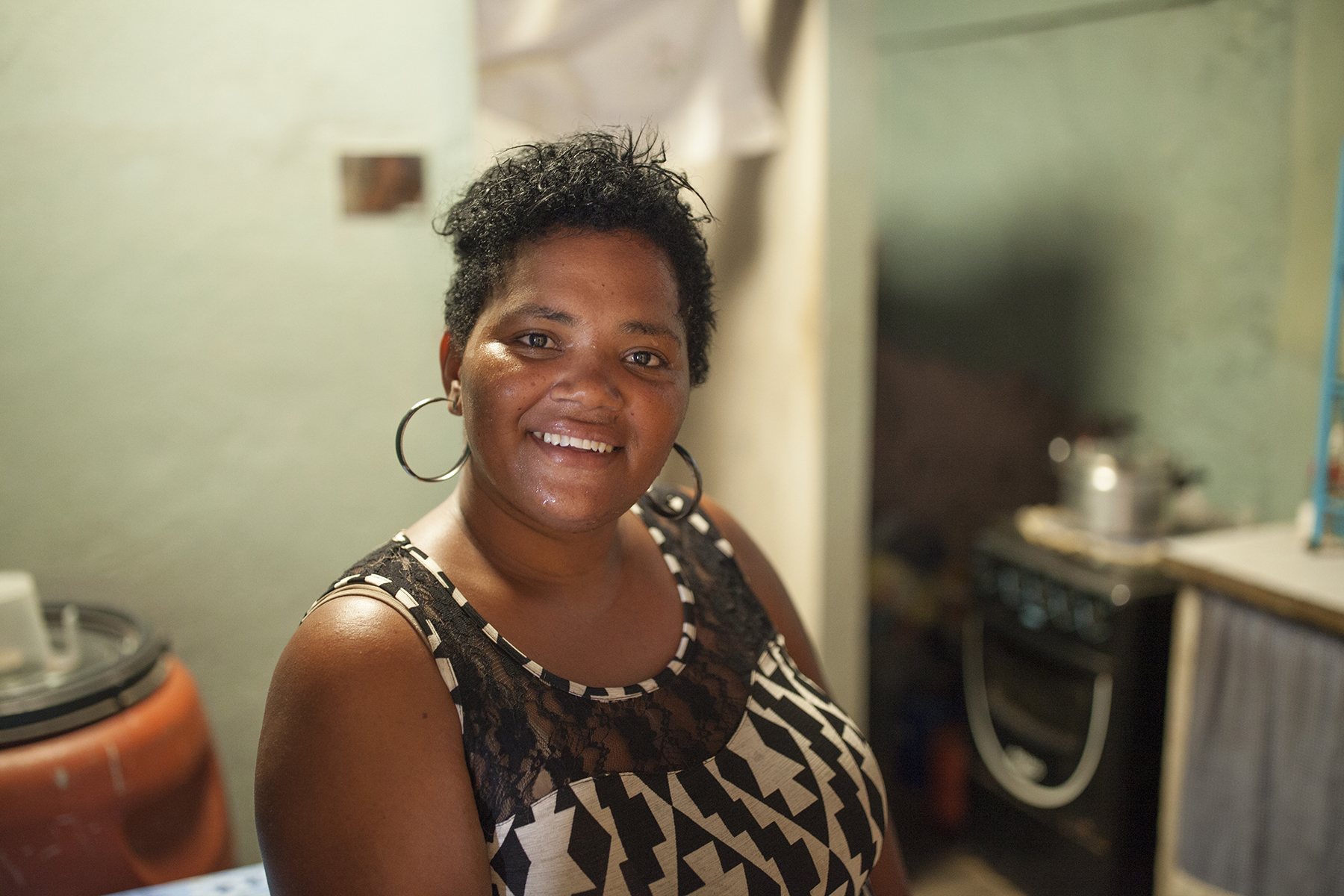
Kyle LaFerriere for MCC
Sheila Araújo used to travel long distances to expensive water kiosks. The Social Access Fund brought water to her home that she now uses for drinking, cooking, cleaning, and personal hygiene.
Through the Cabo Verde Compact II, MCC supported institutional reforms, and a grant facility to build water and sanitation infrastructure. The compact supported pro-poor and gender-responsive structures, policies, and procedures in the newly established national water and sanitation agency and utility. Tariff reforms focused on cost-recovery and provisions for low-income populations. As part of an infrastructure grant facility, MCC built in project selection criteria design to reach low-income households, and components to increase access through building last-mile connections.
A Social Access Fund, in partnership with the Coca Cola Africa Foundation, provided low-income and female-headed households with more than 3,500 new connections to the water network and more than 2,000 new sanitation facilities. In addition, more than 49,000 people were reached with information, education and communications campaigns, focusing on how to understand and pay utility bills, maintenance of household systems, and safe hygiene practices.

